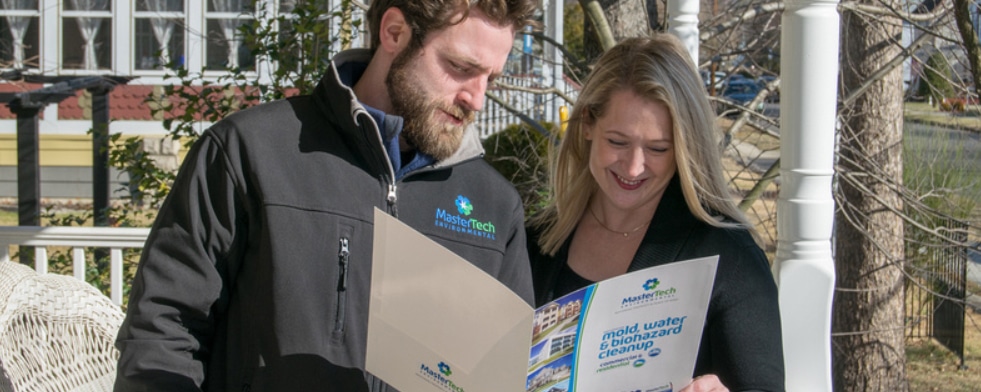 Home Inspection Finds Mold In Your South Jersey Property?
Home Inspection Finds Mold In Your South Jersey Property?
Real estate season is right around the corner here in South Jersey. During the process of buying a new home, one of the main things that needs to be taken care of is the home inspection. If you are looking to buy a new home, it would be wise to educate yourself on signs that this potential new home needs a mold inspection. It is common practice in the home buying process for you to conduct a home inspection with a professional inspector. So, what happens if your home inspection finds mold?
Mold is a relatively common issue that South Jersey homeowners face. When in the process of buying a home, you should be in communication with the seller, ensuring that they disclose any potential mold or moisture issues within the home. Being on the same page with the seller of the home will save you a lot of headache. As with any other issues that are discovered during a routine home inspection, mold must be properly addressed prior to closing, or arrangements should be made to address it. A thorough, reliable home inspector will be able to tell you any and all problems within the home, or any home that you are considering purchasing. Keep in mind that just because your home inspection finds mold does not mean it has to be a deal breaker. Most of the time, mold can be efficiently removed from the porous building materials of a home. A local professional mold remediation company in South Jersey will be able to properly restore mold free conditions to the space.
Mold & What To Look For During Your Home Inspection
Mold can be found in a variety of forms. There are many signs that you can keep an eye out for when looking for potential mold damage in a home you are looking to buy. It’s important that both you and your home inspector know what to look for when checking out prospective homes.
- Visible Growth: Mold can be found in just about any color, depending on the species. Most common colors are white, grey, brown, green, and black. Fuzzy or chalky substances on any surfaces of the home can be indicative of mold growth. Additionally, any spotting or clusters of spores can indicate mold growth within the home. These signs can be more difficult to see at certain angles & in certain lighting, so make sure you are aware of what you’re looking for.
- Discoloration & Staining: Mold thrives on moisture. An excess of moisture seeping into building materials can cause discoloration & staining. Discoloration or staining on wood & other porous building materials is a huge indicator of mold.
- Odor: Mold gives off a musty, unpleasant odor. You may notice this odor in a home you are thinking of purchasing, and it’s important to bring this to the attention of both the seller and the home inspector, as it is a dead giveaway of mold or moisture issues within the home. Just because you can’t see the mold doesn’t mean that it isn’t there.
Conducting A Mold Inspection After Your Home Inspection Finds Mold
In the event that your home inspection finds mold, or conditions conducive to mold, it’s important that you promptly schedule a mold inspection. A mold inspector will be able to give you a better idea of whether or not mold is present, the extent of the damage, and a plan for remediation. Additionally, they will be able to explain what conditions are conducive to mold & how to prevent mold in the future.
The first part of a mold inspection is a visual walkthrough of the space. The inspector is simply looking for visible signs & conditions that could indicate fungal development. Then they will conduct moisture mapping & thermal imaging to pinpoint areas with higher moisture content. This is important because areas that are damp or wet are not always plain to see, and these tools can thoroughly isolate those areas. Following these steps, your inspector will be able to determine whether or not it is necessary to conduct professional mold testing. If your home inspection finds mold, it may be necessary to conduct mold testing within the space. Mold testing can determine whether or not there is an elevated mold spore count, as well as the species of mold that are present.
Even if your home inspection finds mold, more often than not, there will be an easy solution that you can work out between you and the seller. Don’t let mold discourage you from buying your dream home.


